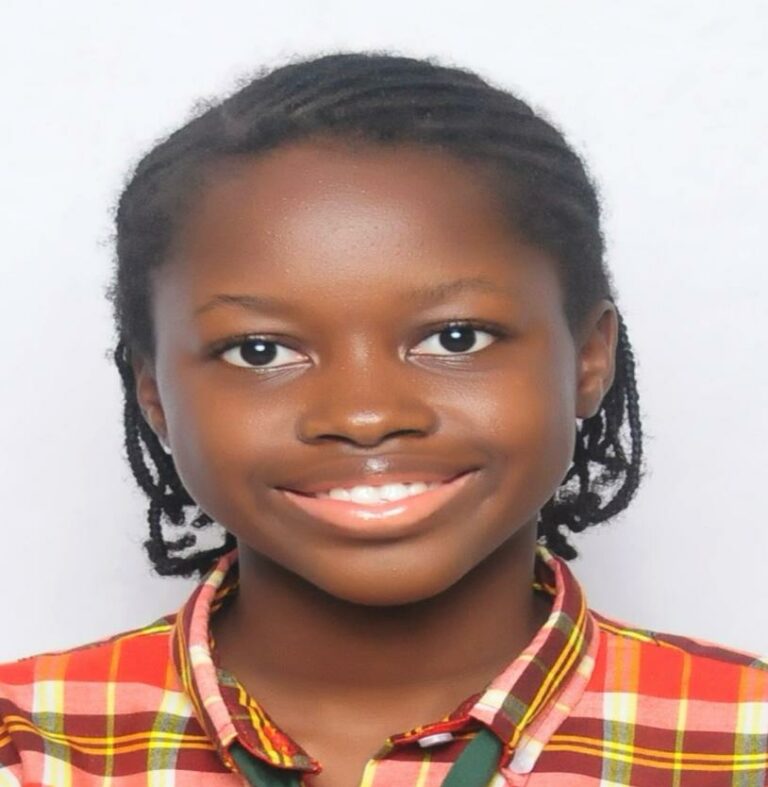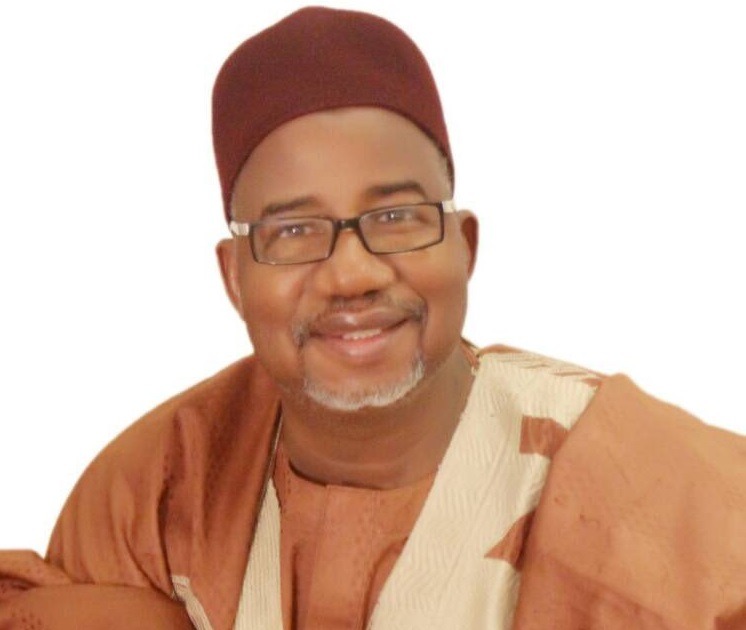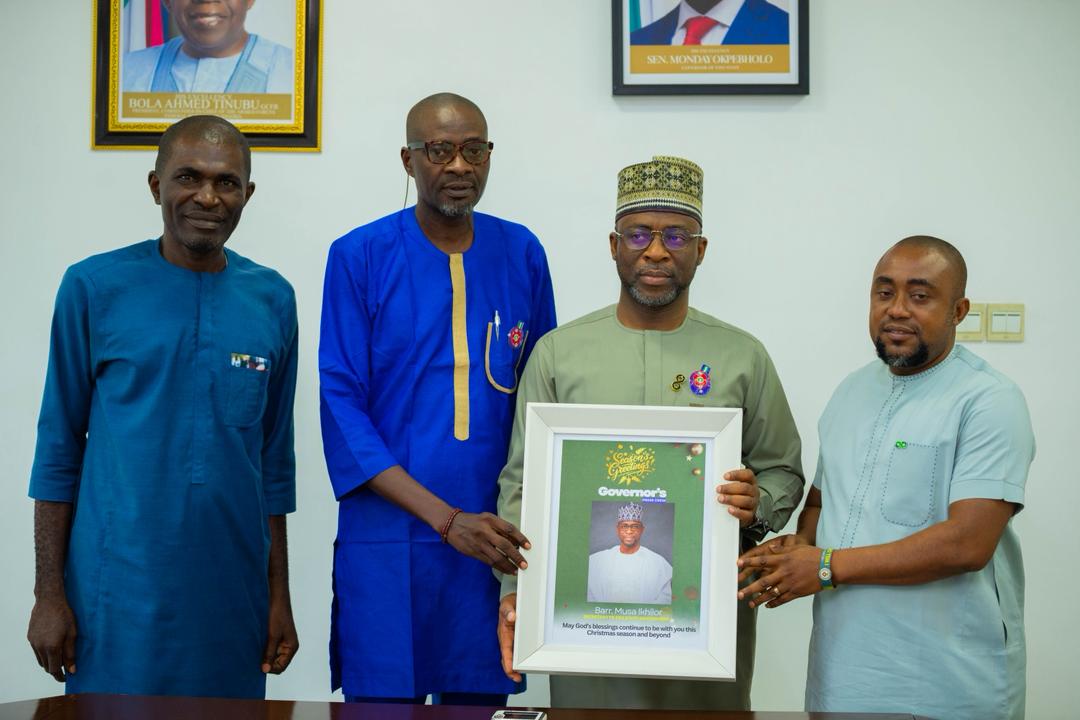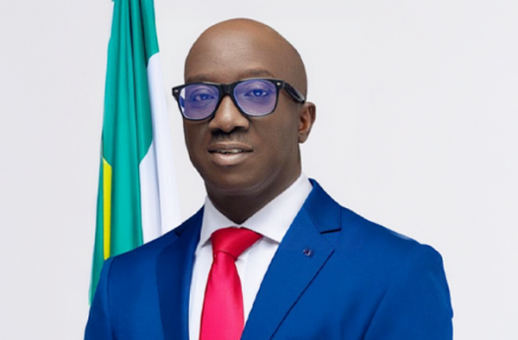News
From 158 To 351: Lagos Teen Excels In UTME After Initial Glitch

A 16-year-old student, Oyindamola Apampa, has achieved a remarkable aggregate score of 351 in the 2025 Unified Tertiary Matriculation Examination, with 65 in English Language, 98 in Mathematics, 98 in Physics, and 90 in Chemistry.
Apampa, a student of Lagoon Secondary School in Lagos, described the feat as the result of determination, strategic preparation, and divine favour.
A statement on Tuesday revealed that it was her second attempt at the UTME, explaining that her initial score of 158 was later invalidated due to technical issues experienced at her exam centre.
She said, “In my first UTME attempt, I scored 158. However, the results were widely criticised and later acknowledged by the authorities as inaccurate due to technical glitches affecting several examination centres, including mine.
READ ALSO: Mass Failure: UTME Candidates To Sue JAMB Over Technical Glitches
“Consequently, the examination body authorised a resit to address these irregularities. In the resit, I achieved a score of 351.”
She added that her parents played a crucial role in supporting her academic journey by fostering a learning-friendly environment at home.
“My parents made our home a positive place for studying. We have a full library in the family living room, in addition to a separate multimedia study room where the whole family often gets together to talk about different topics and help each other learn,” she shared.
Apampa also credited a learning centre in Lekki, Lagos, for providing her with additional academic support through UTME preparation classes and frequent mock examinations.
READ ALSO: BREAKING: JAMB Admits To Errors In 2025 UTME
“The frequent mock exams at our learning centre were a great help in my preparation for UTME,” she said.
In his reaction to the learning centre head, Osayi Izedonmwen, stellar 98 per cent pass rate in the 2025 UTME, attributed the achievement to its hybrid learning approach.
“At Teesas, we are fully IT-equipped to seamlessly support both online and physical learning within a convenient and friendly environment. This has played a key role in helping our students excel,” Izedonmwen stated.
Apampa is no stranger to academic excellence. She was placed on her school’s Honours list after securing 10 As and one B in her Junior WAEC.
She has also represented her school in international competitions, such as the Conrad Challenge, where her team reached the final stage and earned a special mention.
News
Bauchi Govt Sensitises 14,000 LG Staff On Promotion Examination

The Bauchi State Local Government Service Commission has conducted a 2-day Sensitisation workshop for 14,000 local government staff on how to excel in the forthcoming promotion examination.
Speaking before the commencement of the workshop, Alh. Abubakar Wabi, the Chairman, Local Government Service Commission, said that the importance of the workshop for the LG workers could not be over-emphasised.
He said according to the tenets of examination policy, the main thrust of the exam, apart from paving the way for promotion, was to acquaint the staff with regulatory professional and general knowledge.
This, he added, contributed immensely in boosting their capacity and reading culture as well as increase effective performance of their duties for efficient service delivery.
READ ALSO:Bauchi Opens Portal To Employ 10,000 Citizens
According to him, the administration of Gov. Bala Mohammed of the state has resolved to sustain the examination policy and do everything within its reach to strengthen it for the benefit of civil servants and the Civil Service.
“The conduct of this sensitisation workshop is therefore a continued demonstration of the governor’s commitment and concern towards the upliftment of Local Governments as well as human capital development,” he said.
Also speaking, Mr Nasir Dewu, the Overseeing Permanent Secretary, Local Government Service Commission, said promotion examination has the main merit of keeping staff up-to-date with the staff regulations, procedures and General Knowledge.
These, he said, were vital for ensuring effective, efficient and productive Local Government Service.
READ ALSO:Out-of-school: Group To Enroll Adolescent Mothers In Bauchi
“I am happy to inform you that the success witnessed in the 2023 edition of the examination held in 2024 is a further signal that the policy is a worthwhile one.”
He commended governor Mohammed for his commitment to ensure the examination policy’ success in the state.
Dewu urged the participants to reciprocate the kind gestures of the governor by being more dedicated to duties as well as contributing immensely in the revamping efforts of the Local Government Service.
READ ALSO:Maternal Mortality: MMS Tackling Scourge —Bauchi Women Testify
In his address, Alh. Gambo Magaji, Dugge Management Services Limited (DMSL) the Consultant of the promotion examination, called on the participants to listen attentively to the papers that would be presented during the workshop.
Magaji, who said that the resource persons were experienced retired and serving technocrats billed to prepare them for the examination and beyond, added that the examination questions won’t be outside of what they would be taught.
The sensitisation workshop was carried out to help the staff writing the 2024 promotion examination on December 27 to excel.
News
Edo SSG Calls On Media To Support Govt Policies, Assures Better Welfare

The Secretary to the Edo State Government (SSG), Umar Musa Ikhilor, has called on members of the media to continue to support government policies and programmes through objective, professional and balanced reportage, describing them as critical stakeholders in governance.
Ikhilor made the call while receiving members of the Governor’s Press Crew, Edo State Government House, led by the Chief Press Secretary, Ebojele Akhere Patrick, PhD, who paid him a courtesy visit in his office as part of the season’s greetings.
Responding, Ikhilor expressed gratitude for the gesture, noting that it was thoughtful and symbolic.
According to him, the media plays an indispensable role in governance and public accountability.
He said, “Whatever it is that we do, it still will not matter much if we do not have you guys to be our eyes and our ears to report some of those things so that Edo people will be aware and people globally will be aware, and that is where you come in very important.”
READ ALSO:Edo Assembly Declares Okpebholo’s Projects Unprecedented
The SSG further emphasized the strategic role of journalists, describing them as the fourth estate of the realm.
Ikhilor stated, “Because without the press, the government is blind, deaf and dumb. You are the ones we can see with and you are the ones we can hear with and talk with as well. So we consider you very critical stakeholders in the affairs of governance. That is the sincere sentiment of the government,”
He acknowledged the challenges faced by the media, particularly poor working conditions, and assured that the government was aware and already taking steps to address them.
He said, “Your working conditions have not been the best one would have expected. These are some of the things we have made recommendations to His Excellency the Governor, and he has promised from next year, after this budget by January, with a new budget that is coming, there will be something substantial to cater for the media.”
READ ALSO:JUST IN: Okpebholo Assigns Portfolios To Commissioners, Makes Major Reshuffle
Explaining the initial constraints of the administration, Ikhilor noted that spending was limited by budgetary provisions inherited at the time the government assumed office.
He explained, “When we came in, we met a budget already prepared. We just tried and tinkered with it to pass it as at then November–December. Once you don’t have an appropriation, you can’t spend. That would be a criminal offence,”
The SSG urged journalists to remain professional and committed to truth, regardless of circumstances.
He said, “Your responsibility as a journalist, your first training, your first duty, is the pursuit of truth wherever you find it. Reporting should not be based on a special relationship. Professionalism actually means you are consistent and you deliver, whether the day is good or the day is bad.”
He encouraged the media to continue to support government policies and programmes through accurate and diligent reporting, stressing the importance of teamwork in effective communication.
Commending the press crew, Ikhilor added, “I have seen exceptional reports from a lot of reporters here. Our camera men have done very well in terms of proper coverage. Everybody needs to work together as a team for the story to come alive and for the story to be complete.”
Earlier, while presenting a gift on behalf of the team to the SSG in appreciation of his leadership and support, the Chief Press Secretary, Ebojele Akhere Patrick, PhD, said, “In the spirit of the season, I present this to you on behalf of the Governor’s Press Crew in appreciation of your effort as the engine room of government.”
News
Forest Reserve: Okpebholo Broker Peace Between Host Communities, Investors

Governor Monday Okpebholo of Edo state on Wednesday brokered peace between host communities and investors on the use of government forest reserve land for agricultural purposes and investors.
The governor, who was represented by his deputy, Hon Dennis Idahosa, appealed to the various stakeholders to always tow the line of peace at all times
Okpebholo noted that by virtue of the Land Use Act, the land in dispute belongs to the Edo state government.
The governor blamed activities of the previous administration of the state for the hostility between the investors and the host communities over the land that spreads across Ovia South West and Ovia North East Local Government Areas.
He accused the previous administration of arbitrarily allocating the said forest reserve to investors to without due consultation with host communities of Iguomon, Egbetta and Usen.
READ ALSO:Okpebholo Pledges To Clear Inherited Salary Arrears, Gratuities At AAU
He stated that the meeting with stakeholders became expedient in order to straighten out facts and restrategize.
“We had three investors that want to invest in oil palm production in the council areas, which is in line with the vision of Governor Monday Okpebholo to turn the state into investment heaven.
“Today, we met with the critical stakeholders of Ovia South West and Ovia North East to ensure all interests are captured.
“The investors were here, the community leaders, led by the Elawure of Usen, Oba Wilson Oluogbe II, and Palace Chiefs all came.
“Initially, a 5 percent buffer was proposed by the previous administration, but based on the conversation we had today, the investors agreed to increase to 10 percent.
READ ALSO:Okpebholo Removes Itua As Chief Press Secretary
“Haven put into consideration that Ovia is an agrarian area, with 80 percent of people relying on subsistence farming for survival,” he stated.
Okpebholo maintained that part of the resolution involved the raising of a memorandum of understanding (MoU) by investors with their host communities to keep all parties involved in decision making.
IHe declared, “Our administration is people oriented. The interest of investors are paramount to us as well as the interest of our people.”
The Secretary to the Edo State Government (SSG), Musa Ikhilor stated that before the said land allocation to investors, the previous administration was supposed to have carried out diligent studies and a NEEDS assessment in relations to the communities.
He said basic steps ought to have been followed, such as meetings with Community Development Associations (CDA) with agreements reached on community development.
READ ALSO:IYC Expresses Displeasure Over Okpebholo’s Neglect Of Edo Ijaw
Historically, Ikhilor said Usen community started as a farm stead hence the need to carry such a community along in decision making on issues that affect their means of livelihood.
He further encouraged investors to engage in Corporate Social rlResponsibility (CSR) acts as well as put in place activities that promote job creation and general welfare of their host.
The Elawure of Usen, Oba Wilson Oluogbe II praised the Edo State Government for its intervention.
He appealed for communities to be carried along when critical decisions are being made, especially on issues that affect their livelihood.
The investors, included: Nimbel Shaw Limited; Professional Support Farms Limited and Steve Integrated Limited, commended Edo state government for the peaceful resolution of the matter.

 Metro3 days ago
Metro3 days agoSuspected Kidnappers Abduct 18 Passengers On Benin-Akure Road

 News3 days ago
News3 days agoI’m Not Distracted By Anti-Niger Delta Elements, Says PAP Boss, Otuaro

 News3 days ago
News3 days agoEdo Assembly Charges Contractor Handling Ekekhuan Road To Accelerate Work

 News3 days ago
News3 days agoOPINION: Time For The Abachas To Rejoice

 Sports2 days ago
Sports2 days agoJUST IN: Dembélé Named FIFA Best Men’s Player, Bonmatí Wins Women’s Award

 Business2 days ago
Business2 days agoCBN Revokes Licences Of Aso Savings, Union Homes As NDIC Begins Deposit Payments

 Metro3 days ago
Metro3 days agoNDLEA Seizes 457kg of Cannabis, Arrests Suspected Trafficker In Edo

 News2 days ago
News2 days agoWage Dispute: Court Orders PSG To Pay Mbappe €61 Million

 Headline2 days ago
Headline2 days agoAircraft Crashes In Owerri With Four Persons Onboard

 News3 days ago
News3 days agoOkpebholo Pledges To Clear Inherited Salary Arrears, Gratuities At AAU




























